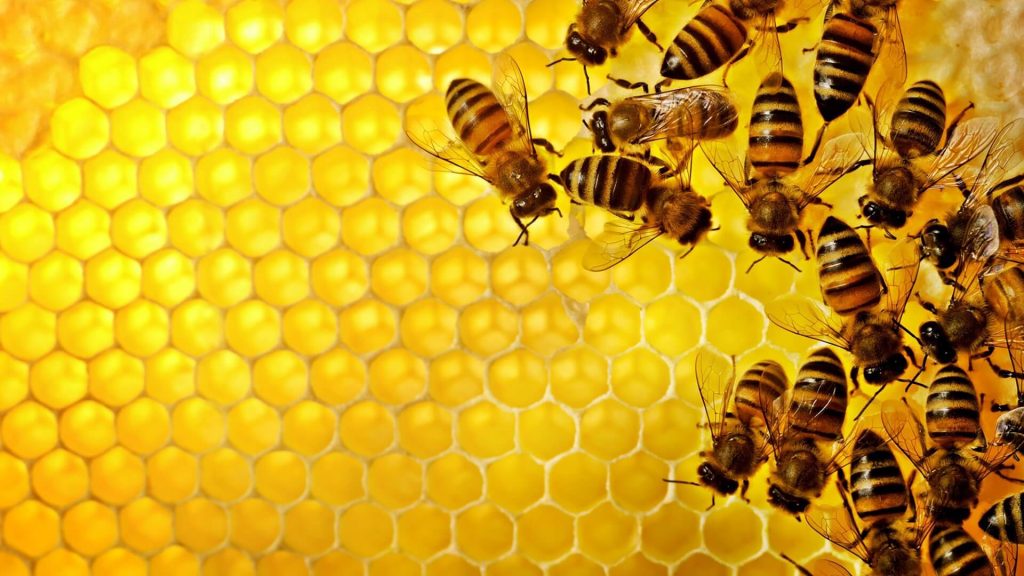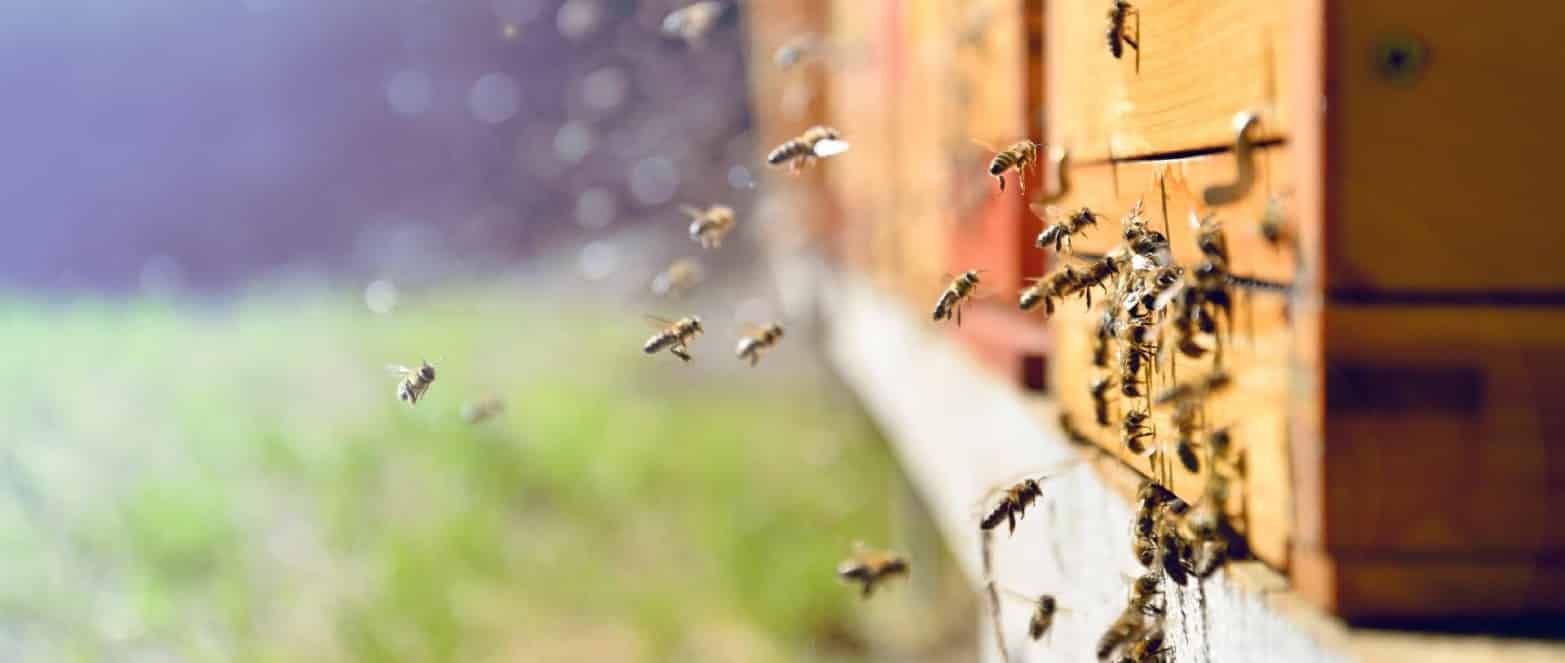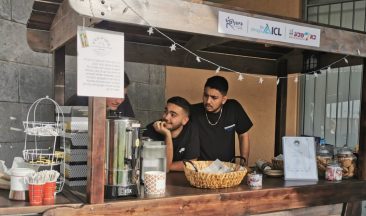We believe in a sustainable future and always consider environmental factors when engaging in operations, especially in ecologically sensitive areas. Biodiversity is one of the most critical ecological areas today and bees, in particular, are one of the most talked-of topics in this field. The bee ‘business’ is a prime example of how we are building an international network of sustainable businesses as a model for a greener future economy.
Sweet Honey Makers or Vital Pollinators?
When we think of bees, we think mainly of the delicious, nutritious nectar we call honey. Flowers attract bees with the sugar-rich nectar at the bottom of their blossoms. Bees process the sweet substance inside their bodies and collect it in honeycombs as a source of nutrition. Honey sustains bees through harsh periods of cold or unexpected droughts, keeping them healthy and ready to pollinate when conditions improve. For over 100 million years bees have evolved into the top pollinators of our planet. And only just now we are beginning to appreciate their diversity, complexity, and their importance for the preservation of ecological balance.
Bees pollinate an equally staggering range of plants all over the planet, regardless of size, color, and social structure (over 90% of all bee species are actually solitary). Their activity is vital to the plants themselves and numerous interrelated species of insects and animals. Many of the food crops we depend on directly would no longer be viable, if bees did not pollinate them. The disappearance of bees would mean the disappearance of food and habitat for many species of insects and animals – which would in turn impact us.
To Bee or Not to Bee
In recent years, experts have been observing strange phenomena in the world of bees. Entire beehives are disappearing for no apparent reason. Many bee species are on the verge of extinction. The rate of the extinction of species is a thousand times higher than was expected by scientists. The world population of bees is shrinking rapidly.
Reasons include the introduction of new species into territories where they disrupt the habits and habitats of indigenous bees, the heavy use of pesticides and over-farming of bee colonies, urbanization processes and disappearance of natural habitats, the spread of disease, increasing global warming, and disruptions of weather patterns.

You may be interested in:
Contributing to the sustainable future of mankind
Given the huge role of bees in pollinating the world, and thus providing numerous species of plants, insects, and animals with food and habitat, their disappearance is a troubling development. Bees are vital for biodiversity, which is vital for the ecosystem. They are responsible for the pollination of nearly a third of the plants which produce 90% of the food in the world.
A Beellion Buzzing Business Bodies
Committed to sustainability, ICL is investing significant resources into identifying and implementing biodiversity-oriented business solutions. A recent example is a venture undertaken by Prolactal, ICL’s subsidiary in Austria which produces organic cow, goat, and sheep milk powder as part of its vision to nourish the world with more naturally produced food. The company pays close attention to the needs of its animals, providing them with natural food and living environments.
As part of its involvement in developing sustainable economies, Prolactal supports local organic initiatives. Most recently, it has formed a partnership with Bienenfink, a local producer of organic honey free of antibiotics and other chemicals. Bienenfink is extremely careful in meeting the natural needs of its bees and gives meticulous individual attention to each of its 150 colonies. The company uses sustainable bio-mechanical methods, organic certification, and gentle processing, ensuring the welfare of its bees and the highest possible quality of its honey, propolis, and pollen products.
The honey market is a challenging one for a sustainable business and Bienenfink depends on clients who are prepared to pay a fair price for a high-quality ecological product. Partnerships like that of Bienenfink and ICL’s subsidiary, Prolactal are key to sustaining the bees in their work of sustaining the world. It is an example of how we can take steps in the direction of biodiversity-oriented business networks around the world to ensure a sustainable future for the planet.







